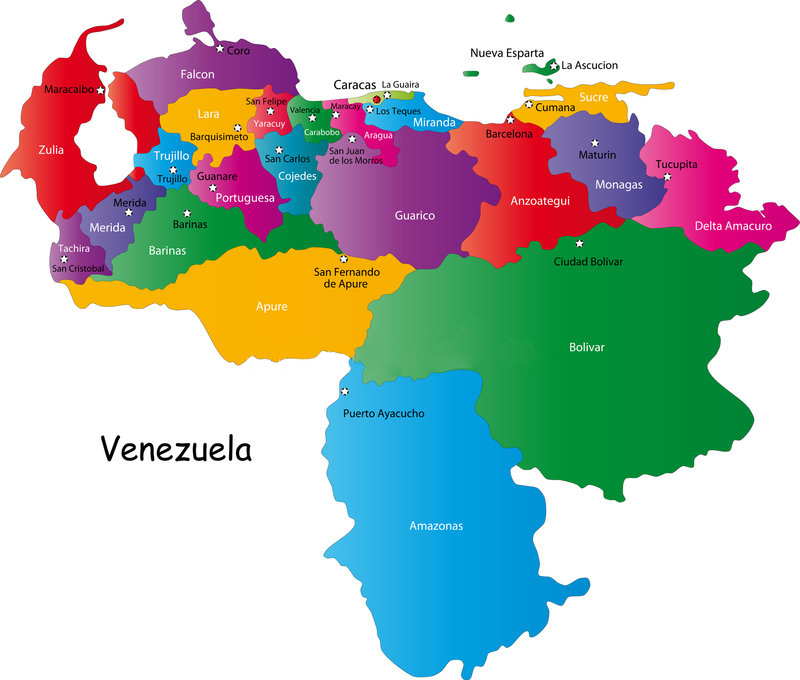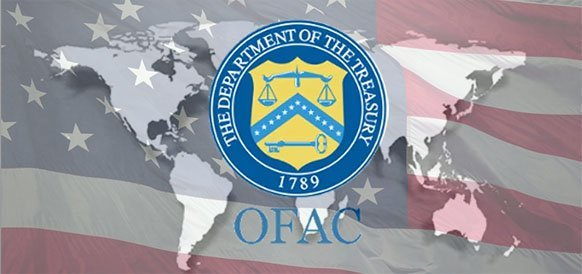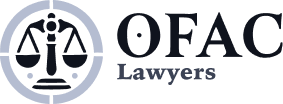
Venezuela Sanctions
OFAC Venezuela sanctions were imposed by the U.S. government in response to the deep political and economic crisis in the country. These measures serve as a tool to pressure the Venezuelan government. The U.S. imposed sanctions against Venezuela, accusing them of suppressing democratic institutions, violating human rights, and corruption. The sanctions are aimed at restricting access to international finances and resources. This is intended to encourage the authorities to implement necessary reforms and restore democratic principles of governance.
Sanctions cover a wide range of actions, including asset freezes, bans on certain financial transactions, and restrictions on groups and individuals. This complicates compliance with sanctions for everyone connected to Venezuela, from companies to private individuals. Understanding the terms OFAC sanctions programs is crucial to avoid fines and other consequences.

Reasons for U.S. Sanctions on Venezuela
The main reason for imposing Venezuela sanctions is the political and economic situation in the country, as well as accusations of corruption, human rights violations, and the weakening of democratic institutions. The focus is on Venezuela’s oil policy, which has the largest oil reserves in the world.

The main goal of the sanctions is to put pressure on the leadership of Venezuela and promote political changes. Main measures OFAC sanction programs include freezing the assets of Venezuelan companies and high-ranking officials, restricting their financial operations, and banning business dealings with state-owned companies.
Understanding OFAC Venezuela General License
OFAC — Office of Foreign Assets Control — requires U.S. citizens to freeze any property belonging to individuals from SDN list, if their ownership share is 50% or more. This rule covers any assets under the direct or indirect control of American citizens, as well as those that may come into their possession. For example, this could include real estate, bank accounts, stocks, and other assets.

General license may be provided for the execution of specific transactions or interactions that would otherwise fall under sanctions. Such licenses allow operations related to the specified assets if they comply with established conditions. For example, without obtaining a license, any transactions with assets from Venezuela’s sanctions list are prohibited, including commercial operations, the provision of services, transfer of property, or other interactions.
To comply with OFAC individuals and legal entities are required to thoroughly verify counterparties. In addition, it is necessary to analyze the ownership structure of assets and use specialized verification tools. Violation of these rules may result in significant fines, a ban on conducting business, and criminal prosecution.
OFAC provides individual and general licenses that allow exceptions for certain types of operations. General licenses are aimed at mitigating the negative impact of sanctions in areas such as humanitarian aid, medical supplies, food, and other critically important sectors. For example, licenses related to Venezuela support initiatives to protect democracy and human rights. Each license has clear conditions that must be strictly followed.
The latest changes in OFAC policy are related to the expansion of humanitarian aid in Venezuela. Now the aid includes the restoration of critical infrastructure, such as energy and water supply. This allows for minimizing humanitarian crises and improving the quality of life for the population.
It should be remembered that the general license of OFAC does not fully exempt from sanctions. It provides temporary or targeted exceptions. Companies and individuals must carefully study the terms of the licenses to avoid unintentional violations.
If you are facing issues related to U.S. sanctions against Venezuela or experiencing difficulties obtaining a Venezuelan license, it is recommended to consult a lawyer. They can provide comprehensive legal support to resolve your issues and remove your data from Venezuela’s sanctions list.
General License 5Q
License 5Q regulates transactions related to the obligations of Venezuelan state-owned companies. The license permits certain operations that would otherwise be completely prohibited. The license is intended to provide temporary relief to international financial institutions working with Venezuelan debt obligations and debt instruments. This will allow minimizing potential losses and reducing the impact of sanctions on international financial markets while maintaining the overall sanctions regime.
General License 7C
License 7C is aimed at cooperation with international organizations such as the UN. Its main goal is to provide the opportunity to implement humanitarian programs and deliver assistance to the population of Venezuela. This license permits certain operations that would otherwise be prohibited and helps mitigate the impact of the crisis on vulnerable groups of the population.
General License 8O
The license is aimed at supporting the limited activities of Venezuelan companies related to the energy sector. The main goal is to avoid significant economic shocks in the global oil and gas market. The license allows for minimal operations to ensure a basic level of extraction of a resource that holds strategic importance for the global economy.
General License 9H
License 9H applies to transactions with debt instruments issued by the government of Venezuela or state-owned companies, including PDVSA. It sets clear conditions under which such transactions may be temporarily permitted. This allows avoiding financial collapse and maintaining stability in markets related to Venezuelan assets.
General License 10A
License 10A regulates the export and re-export of certain goods and services to Venezuela. It includes humanitarian shipments, medical supplies, and other essential resources. This license impacts the provision of basic needs for the population while remaining within the framework of existing sanctions.
General License 31B
License 31B covers interactions with Venezuelan diplomatic missions subject to sanctions. It grants permission to carry out limited operations necessary to ensure the functioning of diplomatic activities. This helps avoid serious disruptions in international relations amid a complex political situation.
General License 40
License 40 regulates the supply of medical goods and agricultural products to Venezuela. Its goal is to prevent humanitarian crises by ensuring the population’s access to essential means of livelihood. This measure is aimed at maintaining the health and well-being of the population under strict economic restrictions.
General License 41
License 41 permits activities related to telecommunications services. This allows Venezuelan citizens to maintain communication and access information. This is especially important during periods of political instability and restrictions on freedom of speech.
General License 44A
License 44A applies to proceedings related to legal cases involving Venezuelan companies and government institutions. It clarifies the legal aspects of such proceedings, providing temporary relief from the sanctions regime. This allows the parties to resolve legal disputes while complying with the requirements of sanctions legislation.
These general licenses facilitate the management of the complex sanctions regime against Venezuela. They are aimed at maintaining pressure on the current regime while simultaneously mitigating the negative impact of sanctions on citizens. To ensure compliance with the license conditions and minimize potential risks, it is recommended to seek consultation with OFAC lawyers.
Venezuela Sanctions Lawyers
OFAC Lawyers specializing in sanctions on Venezuela play an important role in understanding and applying complex international regulations, helping companies and individuals navigate the sanctions regime, minimize risks, and comply with regulatory requirements.
Their services are especially in demand among international corporations that do business with Venezuelan partners or have assets in this country. OFAC attorneys help interpret the provisions of general licenses that regulate permitted and prohibited operations. This includes transaction analysis, counterparty verification, and risk management.
Lawyers participate in resolving disputes related to asset freezing and violations of the sanctions regime. They represent clients’ interests in court proceedings and help resolve disputes at the international level. Contact our OFAC sanctions attorneys! Legal support from our team will help avoid legal and financial problems, as well as maintain the trust of partners and clients.




